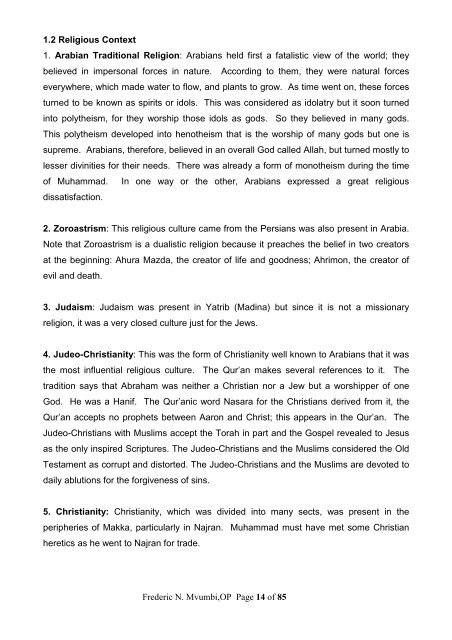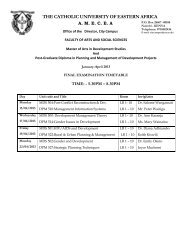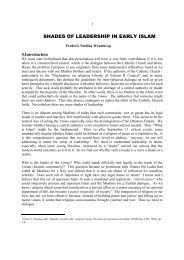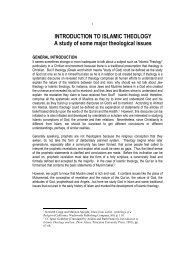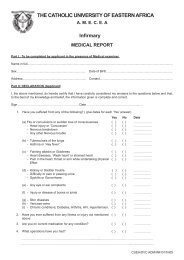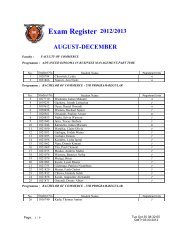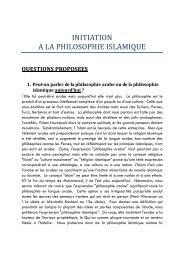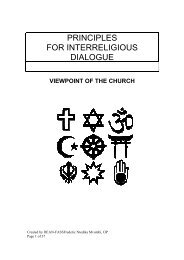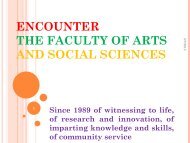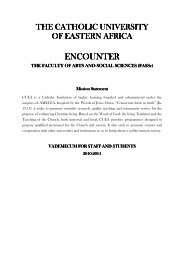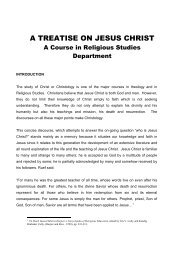ISLAM FOR BEGINNERS BRS 107.pdf - CUEA
ISLAM FOR BEGINNERS BRS 107.pdf - CUEA
ISLAM FOR BEGINNERS BRS 107.pdf - CUEA
Create successful ePaper yourself
Turn your PDF publications into a flip-book with our unique Google optimized e-Paper software.
1.2 Religious Context1. Arabian Traditional Religion: Arabians held first a fatalistic view of the world; theybelieved in impersonal forces in nature. According to them, they were natural forceseverywhere, which made water to flow, and plants to grow. As time went on, these forcesturned to be known as spirits or idols. This was considered as idolatry but it soon turnedinto polytheism, for they worship those idols as gods. So they believed in many gods.This polytheism developed into henotheism that is the worship of many gods but one issupreme. Arabians, therefore, believed in an overall God called Allah, but turned mostly tolesser divinities for their needs. There was already a form of monotheism during the timeof Muhammad. In one way or the other, Arabians expressed a great religiousdissatisfaction.2. Zoroastrism: This religious culture came from the Persians was also present in Arabia.Note that Zoroastrism is a dualistic religion because it preaches the belief in two creatorsat the beginning: Ahura Mazda, the creator of life and goodness; Ahrimon, the creator ofevil and death.3. Judaism: Judaism was present in Yatrib (Madina) but since it is not a missionaryreligion, it was a very closed culture just for the Jews.4. Judeo-Christianity: This was the form of Christianity well known to Arabians that it wasthe most influential religious culture. The Qur’an makes several references to it. Thetradition says that Abraham was neither a Christian nor a Jew but a worshipper of oneGod. He was a Hanif. The Qur’anic word Nasara for the Christians derived from it, theQur’an accepts no prophets between Aaron and Christ; this appears in the Qur’an. TheJudeo-Christians with Muslims accept the Torah in part and the Gospel revealed to Jesusas the only inspired Scriptures. The Judeo-Christians and the Muslims considered the OldTestament as corrupt and distorted. The Judeo-Christians and the Muslims are devoted todaily ablutions for the forgiveness of sins.5. Christianity: Christianity, which was divided into many sects, was present in theperipheries of Makka, particularly in Najran. Muhammad must have met some Christianheretics as he went to Najran for trade.Frederic N. Mvumbi,OP Page 14 of 85


